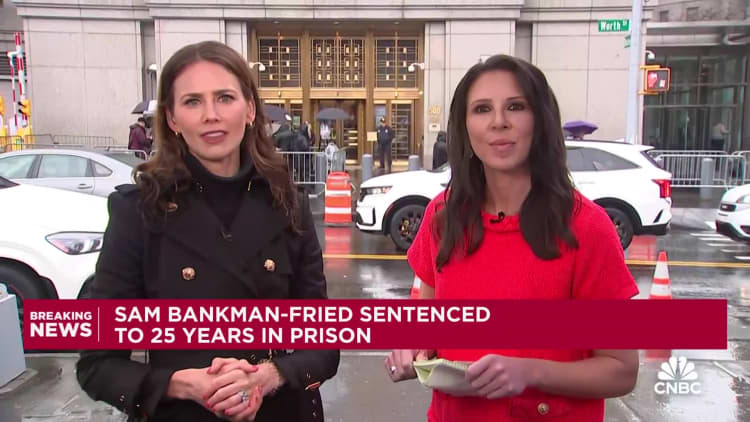Traders work on the floor of the New York Stock Exchange on Sept. 26, 2023.
Brendan Mcdermid | Reuters
A major benchmark for U.S. stocks — the Russell 2000 index — turned negative for the year on Monday, an indicator of broader weakness occurring in the economy that’s being masked by a few large-cap tech equities.
The small-cap barometer lost 1.6% on the day, pushing its year-to-date performance to a loss of 0.2%. It is also down 12.5% from its 52-week high. By comparison, the large-cap-focused S&P 500 and Nasdaq Composite are up 11% and 26%, respectively.
The Russell 2000’s comparative weakness relative to the broad market indexes underscores Wall Street’s concerns that the 2023 market rally has been too narrow. By contrast, the Russell 2000 is often perceived as a better insight into the state of the broader U.S. economy due to its focus on smaller businesses whose fate depends more on macroeconomic conditions.

Russell 2000 in 2023
The sell-off in the small-cap sector has not been surprising due to the current period of market stress and uncertainty, according to Claro Advisors senior vice president Jeff Corey.
“Investors tend to look for quality during times of market volatility, and that consists of stocks with strong balance sheets, significant profit margins, stable business models and growing dividends, and those are characteristics that are not typically found in the small caps space,” Corey said.
Compared to large-cap companies, small caps can also be more sensitive to the higher rate environment. Lending is also often more difficult for small-cap companies versus larger-cap names, which can negotiate lower lending rates. The 10-year Treasury yield is near 15-year highs and was surging Monday.
The Russell 2000 has higher sector weight in financials, which makes it more leveraged toward interest rate conditions, said Bespoke Investment Group co-founder Paul Hickey.
“So if you put all those factors together, I wouldn’t say that the Russell 2000 is a canary in the coal mine. That being said, it’s very out of favor,” said Hickey.
The strategist believes easing pressure on interest rates should help the small-cap index bounce back from its oversold period. He noted that major index exchange-traded funds that cover U.S. stocks are currently trading at “extreme” oversold levels, which could set the Russell 2000 on track to an upward trend.
“When you look at those periods when you’ve seen such broad-based oversold conditions and in the index ETFs, market returns have tended to be good for the S&P, but they’ve even been better for small caps,” Hickey said.
Credit: Source link














